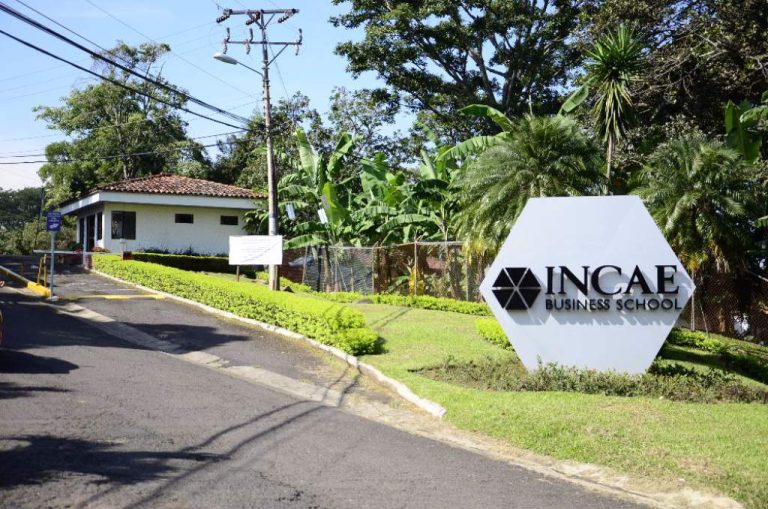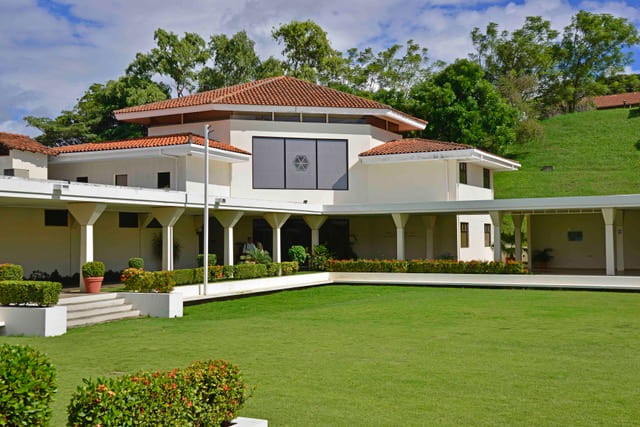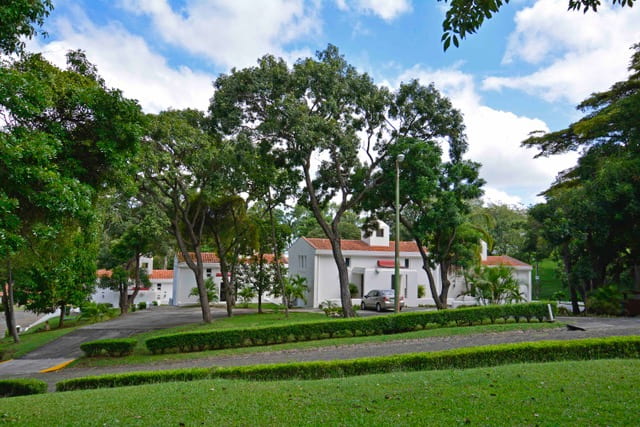1 de octubre 2023

Children of Exile: The Births “Sowing Hope” in the Camp of Nicaraguan Farmers

PUBLICIDAD 1M
PUBLICIDAD 4D
PUBLICIDAD 5D
They closed our Managua campus, but our purpose is still intact

Francisco de Sola Campus of the Central American Institute of Business Administration (Incae), in Managua, Nicaragua. | Photo: Archive
As implausible as it may seem, the news is hard and true. We have closed our wonderful campus in Managua with first-class facilities in the world in which we train local leaders with a global mentality to contribute to sustainable development – so needed – in our countries. But they have only closed buildings. They have not clipped our wings or extinguished our dreams; our purpose is more relevant than ever. The soul of our institution lives in each of our students, graduates, professors, collaborators, donors, and so many friends who have supported us in the region’s almost 6 decades of INCAE Business School’s history.
The founding of our school at the initiative of the governments and the Central American business community, supported by Harvard Business School, has been visionary. There are no countries in the world with high levels of education and low economic levels. Without education and educational institutions of high standards, there is no way to develop an innovative mentality focused on economic, social and environmental growth. Therefore, since our foundation in 1964, INCAE Business School has always occupied a prominent place among business schools in Latin America and the world, and today, it is known for its academic and research excellence. We have the most rigorous accreditations in the world and are recognized in the best global rankings.
Committed to the region’s sustainable development, we focus on developing Latin American leaders with a global perspective and applying research in competitiveness and sustainability, entrepreneurship and leadership to generate long-term social impact. This was stated in 2019 by Professor Nitin Nohria, former dean of Harvard Business School and keynote speaker at our graduation ceremony: “INCAE has been an engine of economic development and leadership in the region. In many ways, INCAE has become a school of greater impact for the Latin American region than Harvard has been in the United States.”

Therefore, due to the impact on education and the well-being of our society, we regret the decision published in the Official Gazette of the Republic of Nicaragua to close our legal status and, therefore, our Francisco de Sola Campus in Nicaragua. We are a non-profit institution, and of course, the loss of assets is a major blow. On the other hand, it is unfair: the forced closure of our campus in Nicaragua is due to reasons that do not reflect our institution’s commitment and dedication to academic excellence and our positive impact in all the countries where we operate and develop activities.
But what worries us most, beyond the tangible impact, is the damage done to the development and education of so many young people who could aspire to have higher quality jobs in both public and private institutions in Nicaragua and, at the same time, impact the lives of many other people through their practice of conscious leadership. Our students carry this purpose in their hearts, as attested by Ian Boyle, a member of INCAE’s Founders Circle: “Our mission is not to improve the lives of those who study here, but to prepare them to change the lives of others.”
This decision has been received with great surprise and deep sadness by the Incae community, professors, students, graduates, collaborators, donors, strategic allies, and members of society in general, who are aware of the value of quality education provided by INCAE in our region. All testify that, in our almost 60 years of foundation, we have been faithful to our mission of actively contributing to the sustainable development of Nicaragua and the region. Over all these decades, the Nicaragua campus graduated more than 4,000 Incaístas who work to create value in public and private organizations in different countries. We have graduated more than 19,000 students from more than 15 countries in the institution’s degree and senior management programs. Currently, more than 6,000 professionals are trained in our classrooms, both physically and virtually, annually in open and corporate programs.
However, our institution has been built with effort and many difficulties and this, instead of collapsing, has made us stronger, resilient, innovative, and strategic. INCAE has been contributing to the social progress of Central America for many decades, as reflected in many of our institutional memoirs. For example, after a devastating earthquake in Nicaragua in 1972, the faculty of our institution mobilized to organize the first grants. At the end of the 70s, INCAE professors continued to teach during the Nicaraguan revolution despite being in the middle of a civil war. In the 90s, Michael Porter and the INCAE faculty developed the regional competitiveness strategy for Central America. This work represented a unique case in the adoption of the concepts presented by Porter in his book “The Competitive Advantage of Nations ” at the highest levels of government.” This strong commitment of our predecessors helped strengthen the region and laid the foundation for INCAE’s current dedication to fostering social progress within the region.

Without further ado, during the recent pandemic, the institution – made up of professors, collaborators, and very committed students – has once again shown its resilience and has reinvented itself through transformation, digitizing all its academic areas and offering online programs with results as high as in traditional offers. More than 2,000 students are currently trained in our virtual programs.
This capacity for innovation and adaptation will allow us to continue with our purpose of transforming lives in Latin America for a better future. We will continue to develop our training and research activities at the Walter Kissling Gam campus in Costa Rica, in countries throughout the region and, of course, in our virtual programs taught throughout the year.
INCAE thanks all the members of our Incae community for their dedication and support throughout these years, as well as for their solidarity in these difficult times. We will continue to fulfill our purpose, with a focus on the long term and impact, amplifying it through the work of our graduates. As Guillermo Alonso, President of Automercado Costa Rica and MAE XI’79, mentions: “As graduates, we have the great responsibility to influence not only the profitability of the companies in which we work but also to enhance the impact on the communities that surround us, thus being examples for the next generation. Supporting causes that positively change others’ lives is a role every Incaísta should play.”
They took away our campus, but they cannot take away our purpose or the durability of a school that lives through people and serves the noble purpose of educating and generating development for greater welfare and social progress. As Michael Porter said: “INCAE’s impact is greater than its size.” It is the nobility of purpose, not the size of buildings, that marks the impact of an academic institution. Ours is and will continue to be: “Transforming lives for a better future in Latin America.”
*Originally published in ReVista, Harvard Review of Latin America
Camelia Ilie Cardoza is Dean of Strategy and Institutional Affairs, Chair of the Center for Inclusive and Sustainable Leadership, and Professor at INCAE, a leading business school in Latin America. She was a DRCLAS Harvard visiting fellow in 2018-2019 and has more than 25 years of international experience. She is an engineer from the Polytechnic University of Bucharest and has a Ph.D. in Business Administration from the University of Comillas in Spain.
PUBLICIDAD 3M
Rector de Incae Business School. Bajo su liderazgo se han fortalecido relaciones con algunas de las más prestigiosas escuelas de negocios en Estados Unidos: Yale, Michigan, Universidad de Virginia y Babson College. Es Ingeniero Industrial por la Universidad de Michigan y MBA por Incae Business School.
PUBLICIDAD 3D